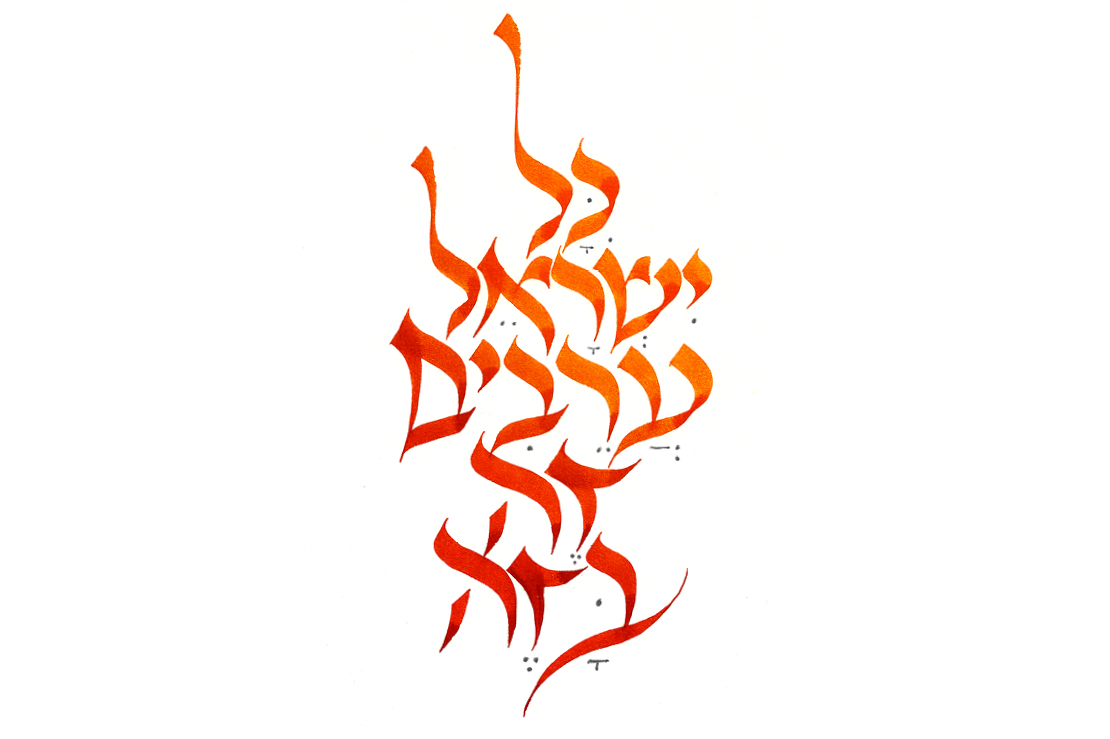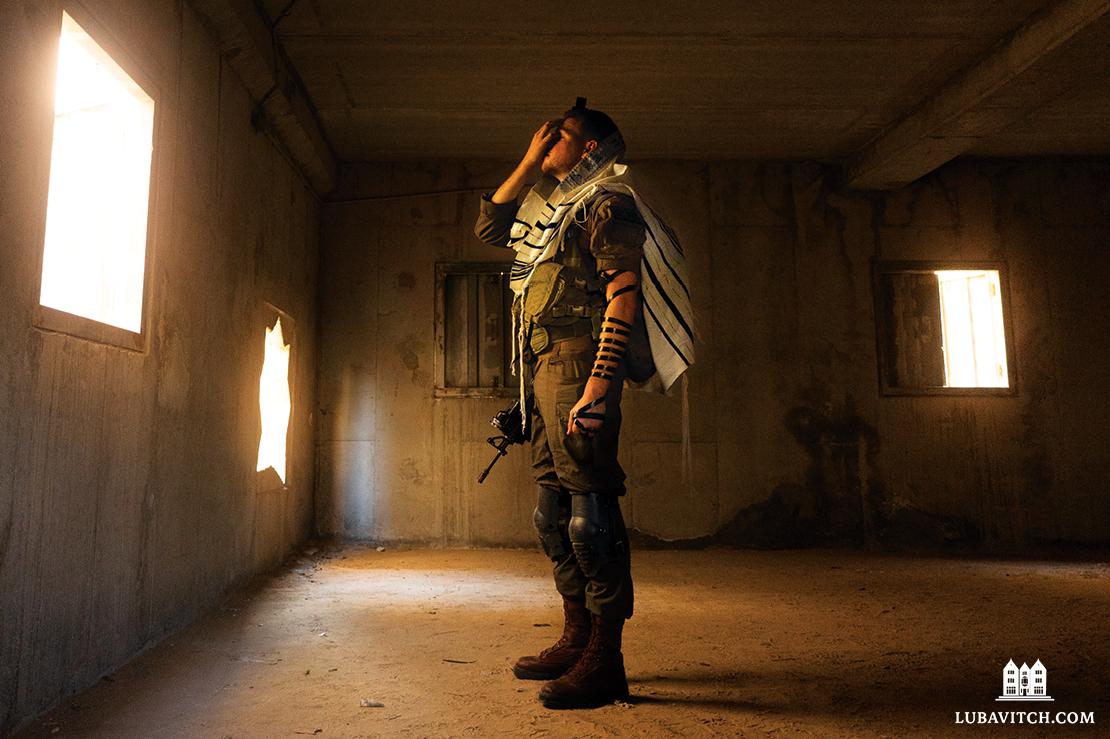My late mother was nine years old when she saw Holocaust survivors streaming into London. These were young people—ten to sixteen years old—taken directly from concentration and DP camps. They were orphans from different places on the Continent and had been given special visas to stay in the UK for two years. They were housed in the Jews’ Temporary Shelter on the East End. In Eastern Europe, they would have called this a hekdesh, a homeless shelter for destitute adults, that had been built in the late 1800s and had four floors of dormitory space.
One day, my mother walked by the shelter and heard the survivors singing Ani Ma’amin. “I believe with perfect faith in the coming of the Messiah,” they sang. “And even if he tarries, I await daily for his coming.”
It was not as if these young people had suddenly embraced or re-embraced a rigorous observance of the commandments in the style of my mother’s pious family. But in the moment of their song, they had reached for something. “I believe with perfect faith,” they’d sung. It spoke to my mother’s soul. Just a few years before, as a child of five, she herself had braved the Blitz and worse. Something in their singing unloosened in her a feeling of spiritual identity and coherence. She felt close to herself and to them.
In moments of my own skepticism, I would ask my mother what it was that she believed about Judaism, the Torah, G-d. After all, her father and her mother had seen their own parents and siblings murdered at Maidanek. She knew something of suffering. At the question, she would become inarticulate. She would cast about, stammering in her Yiddish-British way, but something of her being believed that despite everything, the presence of a Jewish G-d could be felt.

But how? How did my mother retain her faith despite everything? How do we, as Jews, heal after a trauma? How do we find our way back to the G-d who failed us?
In the wake of October 7, that question reverberates with new force, piercing the very foundations of Jewish belief. It is a day that will live in infamy for the Jewish people: the largest, most awful, most heinous pogrom since the time of Babi Yar and Auschwitz—hundreds butchered on an open field in the light of day.
The question cannot be answered. And yet, even as the attack was unfolding, a response emerged. In the extraordinary acts of self-sacrifice and heroism, in the reservists who left their families before they could be called up, in secular software engineers who harnessed all their resources to identify the victims, in religious communities that came together to support grieving families who did not share their beliefs, and in the quarter million American Jews who converged on the US Capitol, we heard a singular voice, a statement of faith.
How does one explain this?
I grew up with a friend whose father, Motke, was a survivor of the Lodz Ghetto and several concentration camps including Auschwitz. Every year, we would get together at Motke’s house on the seventh night of Passover to commemorate the anniversary of his liberation from Buchenwald.
We ate Passover cake and brownies at his dining room table, and he would tell us about having wandered throughout Europe after the war as a youth of nineteen, and how, slowly, he came back to himself. Over years, he rebuilt his life, married, had four sons, and sent each of them to yeshiva. But he had to tell the truth, he said. He had not lived his life as a saint in those years. He had lost his belief.
One particular Passover, towards the end of his life, when Motke’s family had already grown, we asked him what he believed now. Surely now, as he sat with his grandchildren at the Seder table, he believed in G-d, we thought. We expected him to say something deep and philosophical. Instead, he repeated the question: “Belief, you say? Belief?!” He raised his voice, raised his hand and then let it fall softly to the table. “I believe in nothing!”
“Belief, you say? Belief?!” He raised his voice, raised his hand and then let it fall softly to the table. “I believe in nothing!”
There was a shocked silence. We looked at each other and at him, his children in Chasidic garb, his wizened face. He ate a brownie. “I have an attachment,” he offered, “a strange attachment to dos Yiddishe folk—the Jewish people.”
It took me many years to understand it, but Motke, with neither he nor we fully knowing it, was saying something indeed amazing, deep, and philosophical, and religious. I have a strange attachment to the Jewish people. What an amazing statement! In binding himself to the Jewish people, Motke was allowing his conversation with G-d to continue, but in a different form.
The psychoanalyst Michael Eigen asserts that faith might be deeper than belief. “Belief,” he writes, “is a way of capturing faith, taming it, putting it in a box. Faith explodes belief. Faith feels constricted by belief. At the same time, beliefs can try to give expression to faith, lead to faith, deepen it. . . . Can you have a belief that does justice to faith?”
There were other survivors like Motke in my childhood shul. Some prayed with great intensity, others clung to the rituals like Krazy Glue but felt dead inside. Yet in that clinging, I, too, like my mother, sensed a world of buried hurt, grief, disappointment, and paradoxically—faith.
Faith and belief commingle, and yet they are separate strands in the human psyche. Belief is finite and fragile—albeit precious. Faith exists in a more ventilated area of the human psyche and doesn’t force one into a small space. Eigen quotes the verse from the Shema prayer, “Love G-d with all your heart, with all your soul and with all your might.” To have faith, Eigen writes, is to live in that place.
And that larger space, we learned after October 7, can contain so much. An entire country, the body of Klal Yisrael—the corpus of the Jewish people.
The sacred Zohar teaches that G-d, the nation Israel, and the Torah are one. This suggests that faith in G-d may be experienced through a simple but profound attachment to the Jewish people, or perhaps even to a single aspect of Creation.
Faith and belief commingle, and yet they are separate strands in the human psyche. Belief is finite and fragile–albeit precious. Faith exists in a more ventilated area of the human psyche and doesn’t force one into a small space.
This is the faith of the “October 8th Jew.”
A colleague of mine, Ezra Millstein, a psychoanalyst, wrote to me recently,
I was not raised religiously. Indeed, I was instructed to be skeptical. I was given, as a
gift for survival, atheism and contempt for any organized religion, especially
Judaism, owing, of course, to the fact that we were Jews.
Like many of us, I’ve been reading about the massacre and the war incessantly. I am
learning, for the first time, how many pogroms there have been, how widespread
they have been, how brutal and routine they have been. I understood we were
scapegoats, but not to this extent.
For the life of me, I cannot say why, but now, after a lifetime of indifference to my own heritage, I am, mostly, a believer. I pray but not regularly or ritually. The sanctuary of my belief, my faith, is more than a balm or consolation. It tells me and shows me that I and we are in good hands, that all evidence to the contrary, though we suffer, He will not let us down as a people.
There is no set recipe, but if nothing else, our long history of slavery, persecution, and exile has made us adept at pulling ourselves together as a people of faith—somehow. It seems to happen spontaneously, slowly or sometimes all of a sudden, but that it happens at all is one of the wonders of the world.
Alter Shimon Feuerman is the author of the Yiddish novel Yankel and Leah. He is the director of the New Center for Advanced Psychotherapy Studies in Passaic, NJ.

Herman de Vries
Words to reread in quietness and thankfulness.
Christine
Amen. The people of Israel are so strong and resilient. I want to read this again as well.God Bless you.🙏🏽👑♥️
Christine
This article has given me hope and a stronger belief that God will always come through for His chosen people. I was upset earlier thinking where is God when all of this destruction is happening to Israel? I said LORD you have made so many promises to protect your people.Seeing in this article how the Israelites have God so deep inside themselves and how they are so self sacrificing has changed my outlook. Thank you so kindly for sharing your stories I am a believer that Christ has already come once, a Christian, but I am forever grateful for the Hebrew people and the fact that what I believe comes from them . They are our roots.
Eilat
It all seems too much, the rules, traditions, prayers, fasting, but as I light the Shabbos candles, recite Shema, give tzedaka, I feel connected to Hashem. I have to believe there are reasons for Jews to go through these tests. Only G-d knows.
Jean
God will always come through for His chosen people. I was upset earlier thinking where is God when all of this destruction is happening to Israel? I said LORD you have made so many promises to protect your people.Seeing in this article how the Israelites have God so deep inside themselves and how they are so self sacrificing has changed my outlook.